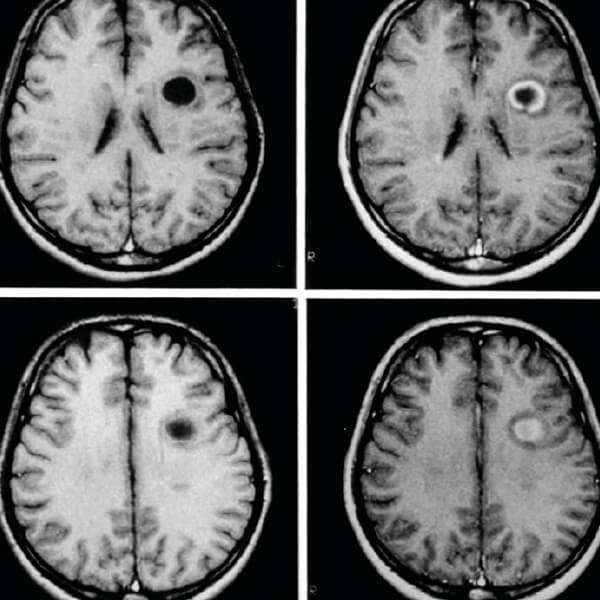The disease
Multiple sclerosis, Decrypted
Multiple sclerosis (MS) is the most common neurological disorder among young adults and often results in a handicap. In Belgium, it affects some 13,500 people (2018).
News

From generosity to knowledge: Charcot Funds 2025 publications updated

When a celebration becomes a symbol of research
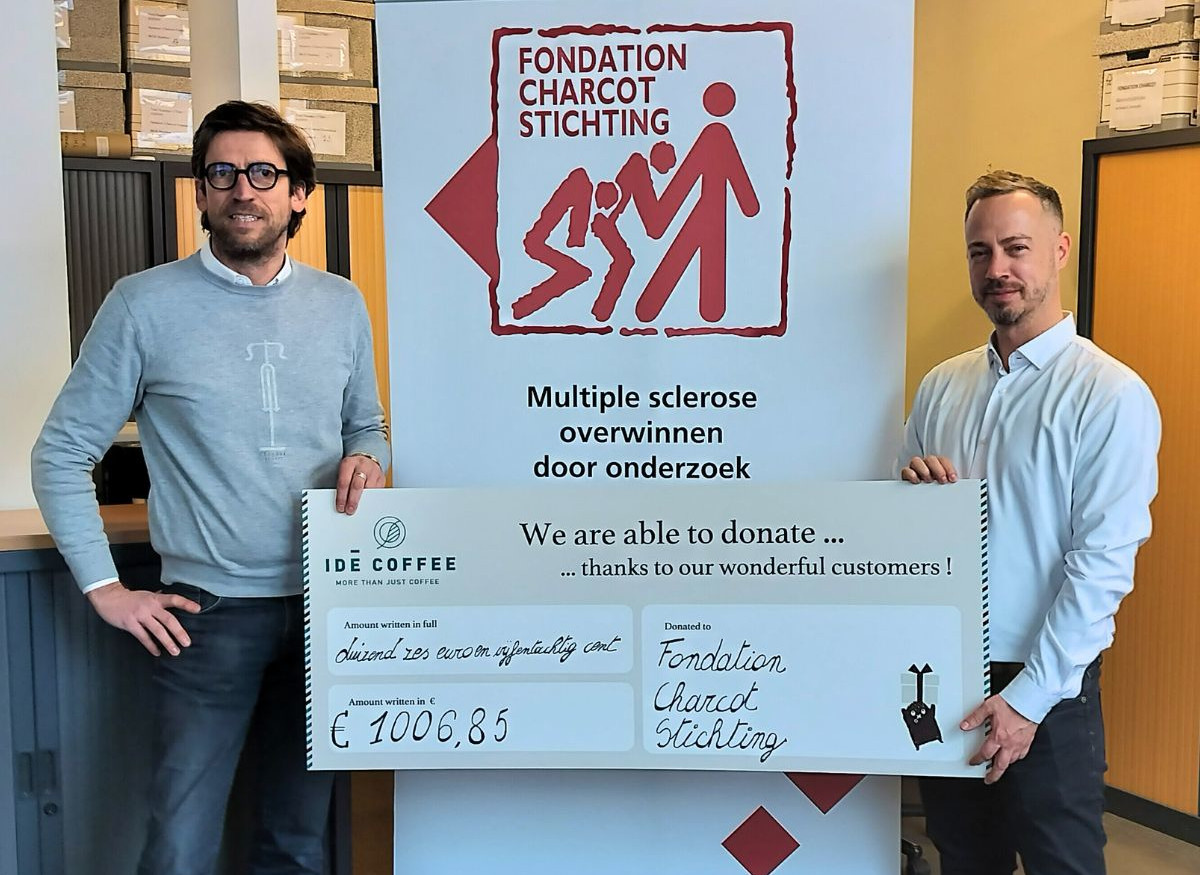
A December of solidarity: chocolate, coffee, and research against multiple sclerosis
Research
Scientific
publications
Our commitment since 2015 has allowed the publication of more than 170 scientific articles, thus helping to stimulate exchanges and guide future research paths in the face of a disease that is still without a cure.
Research
113 projects
supported
To overcome MS, it is essential to understand the mechanisms of the disease. In academic laboratories and research centers, budgets for research into multiple sclerosis exist but are limited. Every year, research teams look to the Belgian Charcot Foundation.
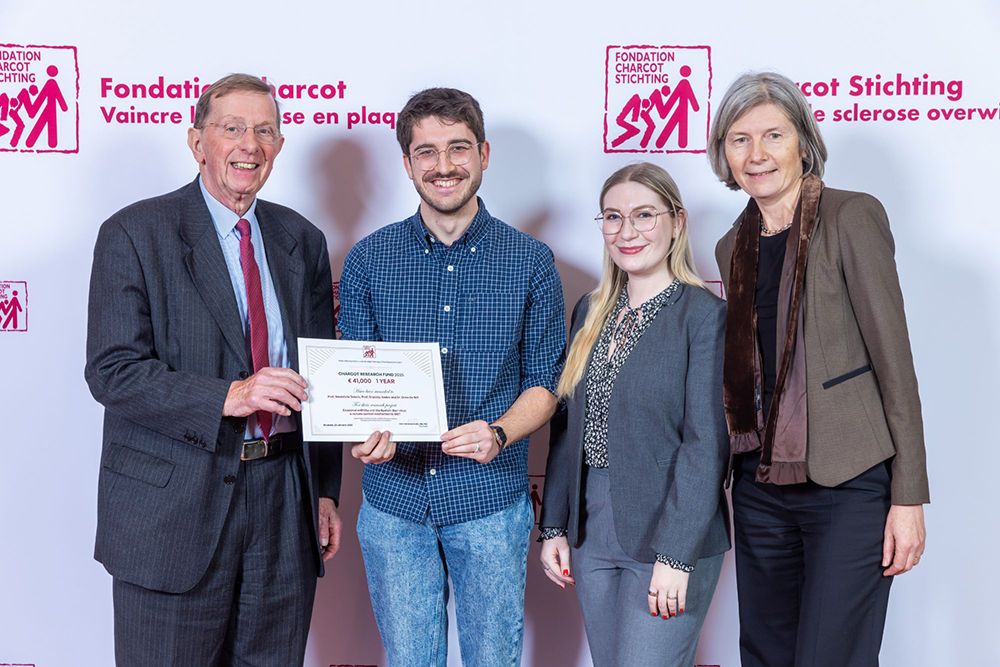
Could a Common Virus Help Diagnose MS?
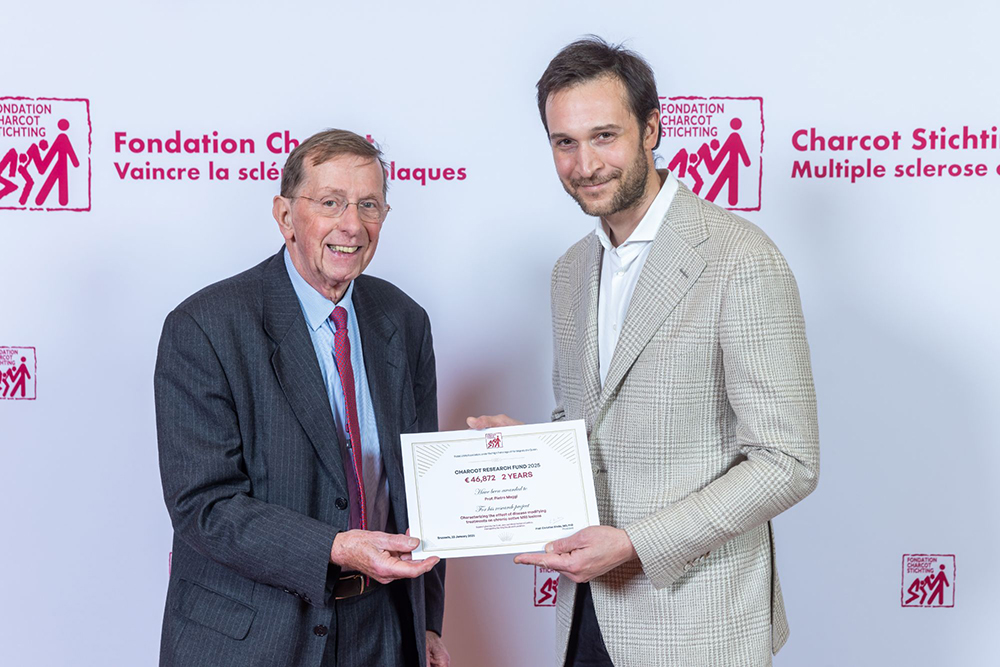
Targeting Aggressive Brain Lesions in MS: A New Approach
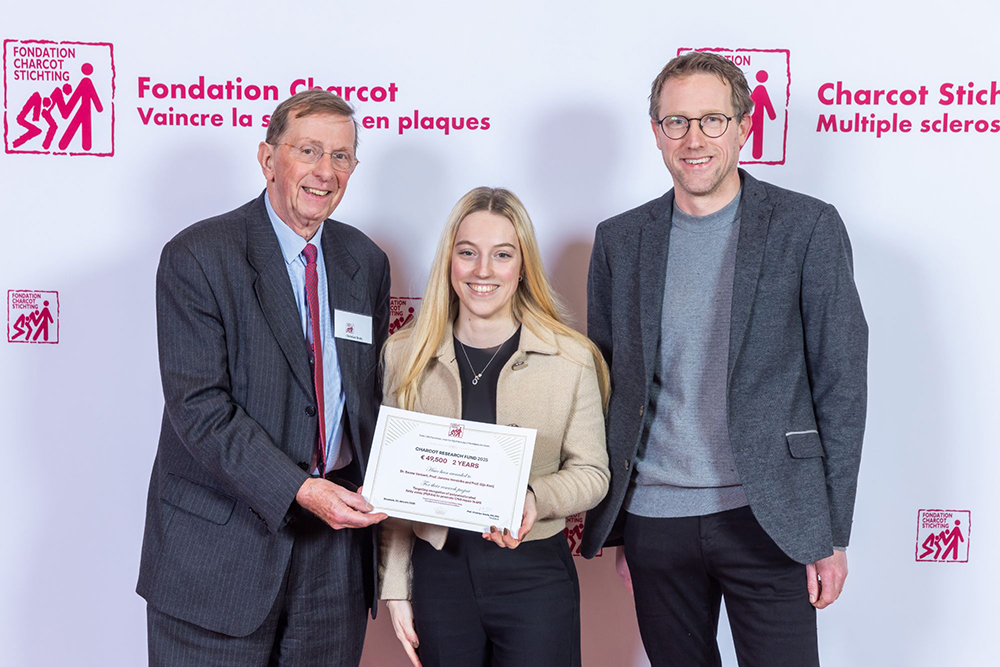
How Lipids Could Hold a Key to MS Repair
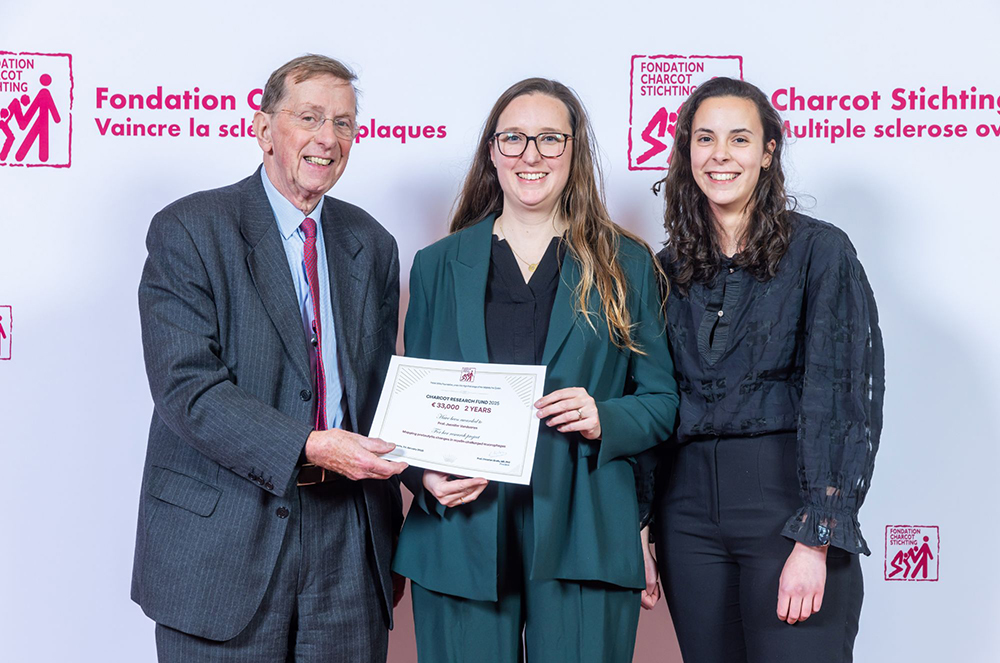
Understanding how immune cells both harm and heal in MS
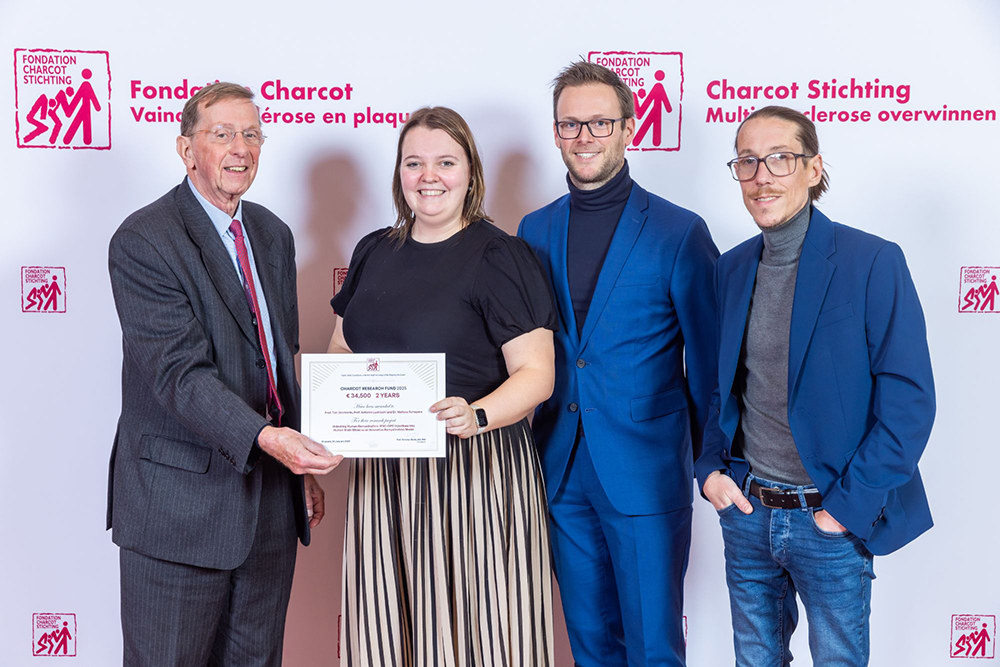
Building Better Models to Study Myelin Repair in MS
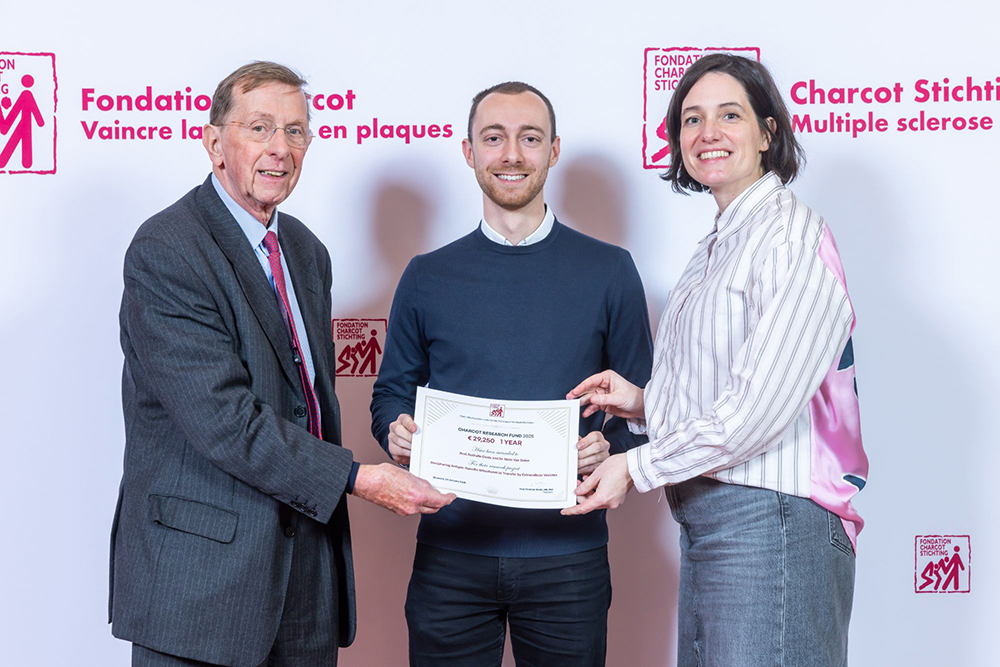
Harnessing Cell Particles to Combat MS
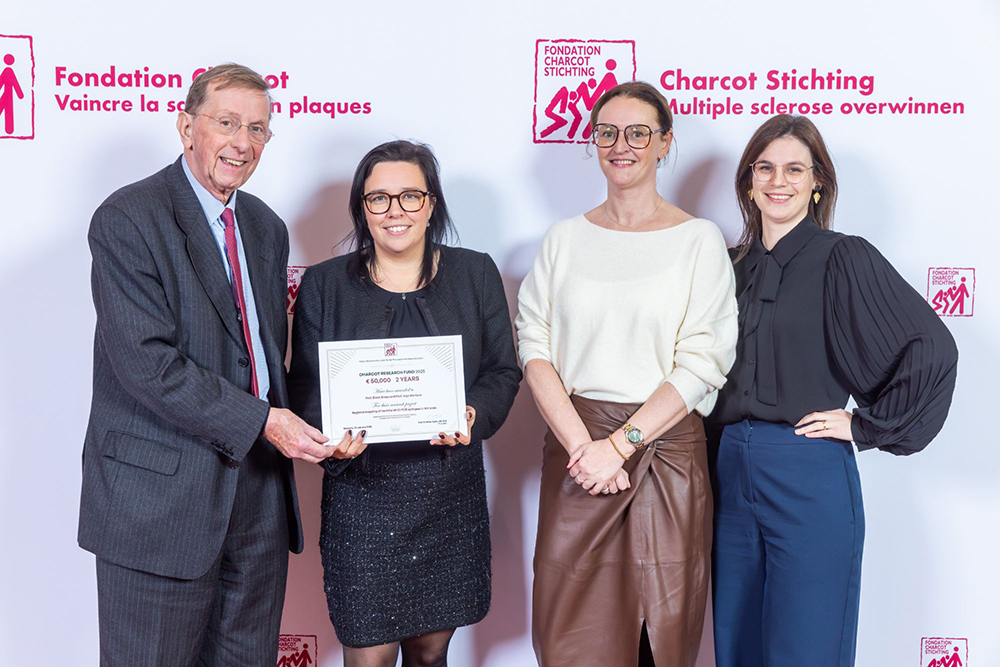
Mapping Immune Attacks in MS brains
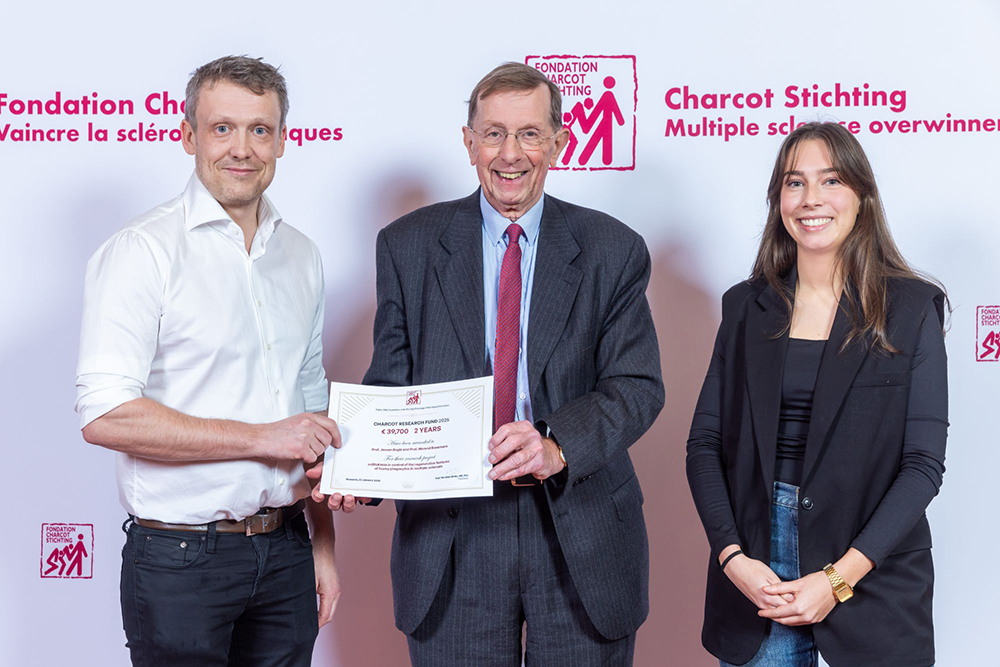
Can a Tiny Molecule Help MS Recovery?
1868
The French neurologist Jean-Martin Charcot was the first to describe in detail the symptoms and lesions characteristic of multiple sclerosis. He is now considered to be the “father” of modern neurology.
1942
Elvin Kabat and colleagues identify high levels of IgG in the cerebrospinal fluid of affected patients, marking a turning point in understanding the immune role of MS.
1981
For the first time, MRI makes it possible to accurately visualize the lesions caused by multiple sclerosis in the brain. It is still a central tool for diagnosis today.
1993
Don Paty and his team demonstrate the effectiveness of interferon beta in the relapsing-remitting form of MS, opening the era of systemic treatments.
2010
Two clinical trials validate Fingolimod (Gilenya), the first oral medication to show effectiveness against MS flares. A major advance in terms of comfort for patients.
2023
A large epidemiological study conducted by Alberto Ascherio confirms that infection by the EBV virus is a major trigger factor in MS, reinforcing the hypothesis of a viral origin.

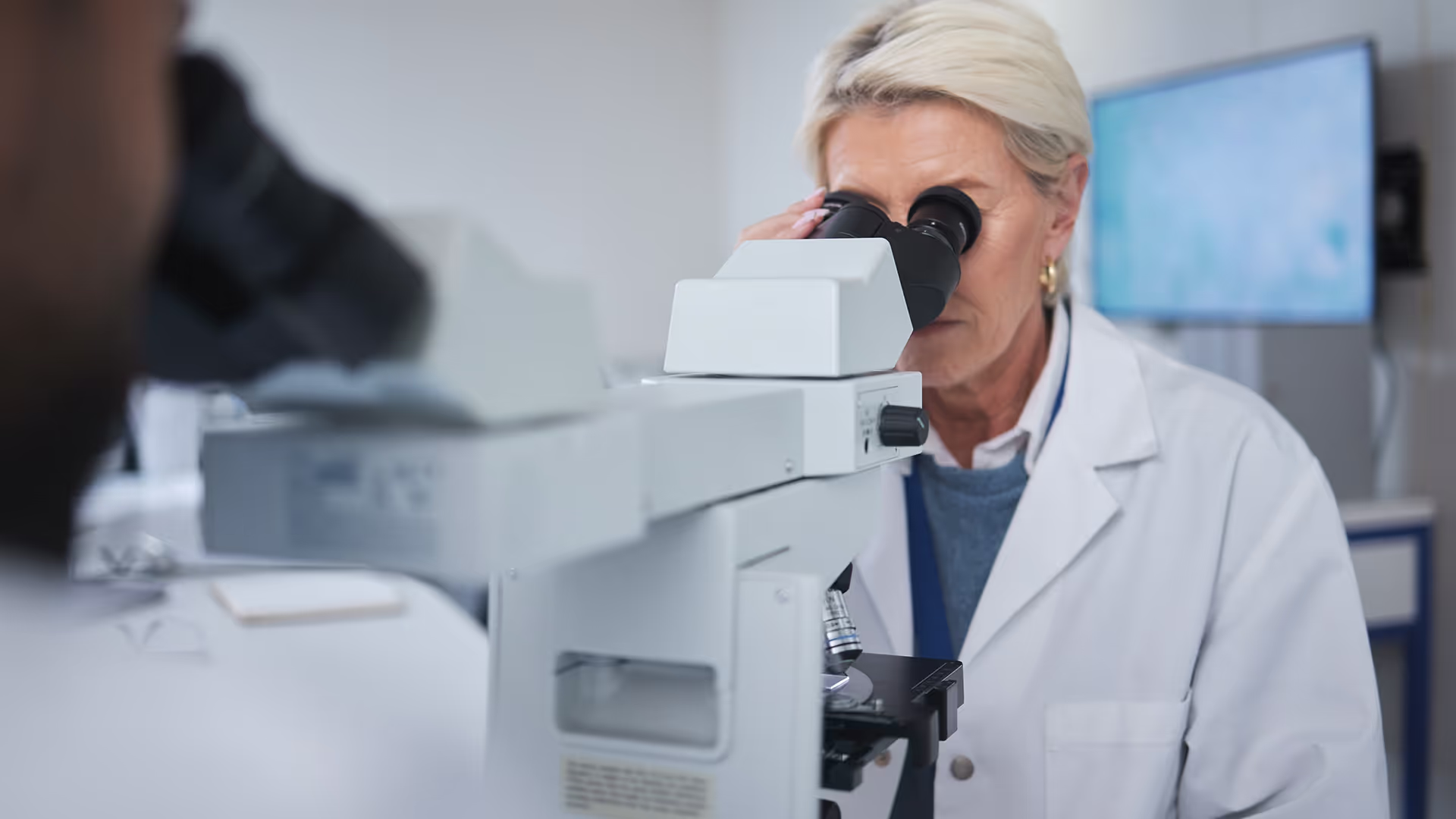

The foundation
Our action
Thirty years ago, there was no cure. Since its creation, the Charcot Foundation has had an important “leverage effect” in research: one of the first funded projects concerned a molecule that has since been approved as a treatment for certain forms of the disease.
Charcot 2025 Fund
This year, the foundation is supporting 8 new innovative projects in multiple sclerosis research.
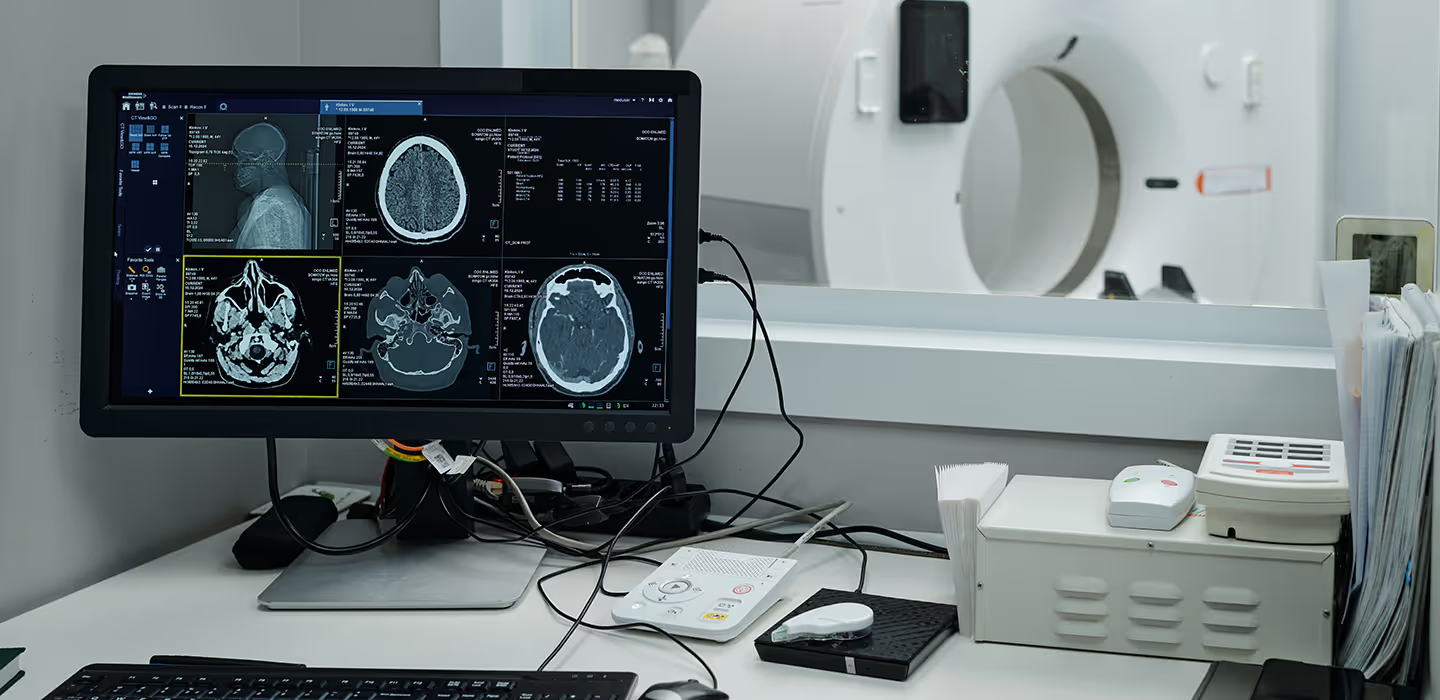
Belgium, a precursor country
Created in 1987 and declared of public utility since 2001, it has worked since 2015 under the High Patronage of Her Majesty the Queen.
Research support
Since its creation, the Charcot Fund has supported more than 200 researchers and research teams throughout Belgium.

Contribute
Support research

Make a Gift
Support research with a donation of the amount of your choice. Easy to do online and deductible from €40 in Belgium.

Leave a Legacy
You can bequeath part of your assets to the Charcot Foundation via your will, in favor of research on multiple sclerosis.
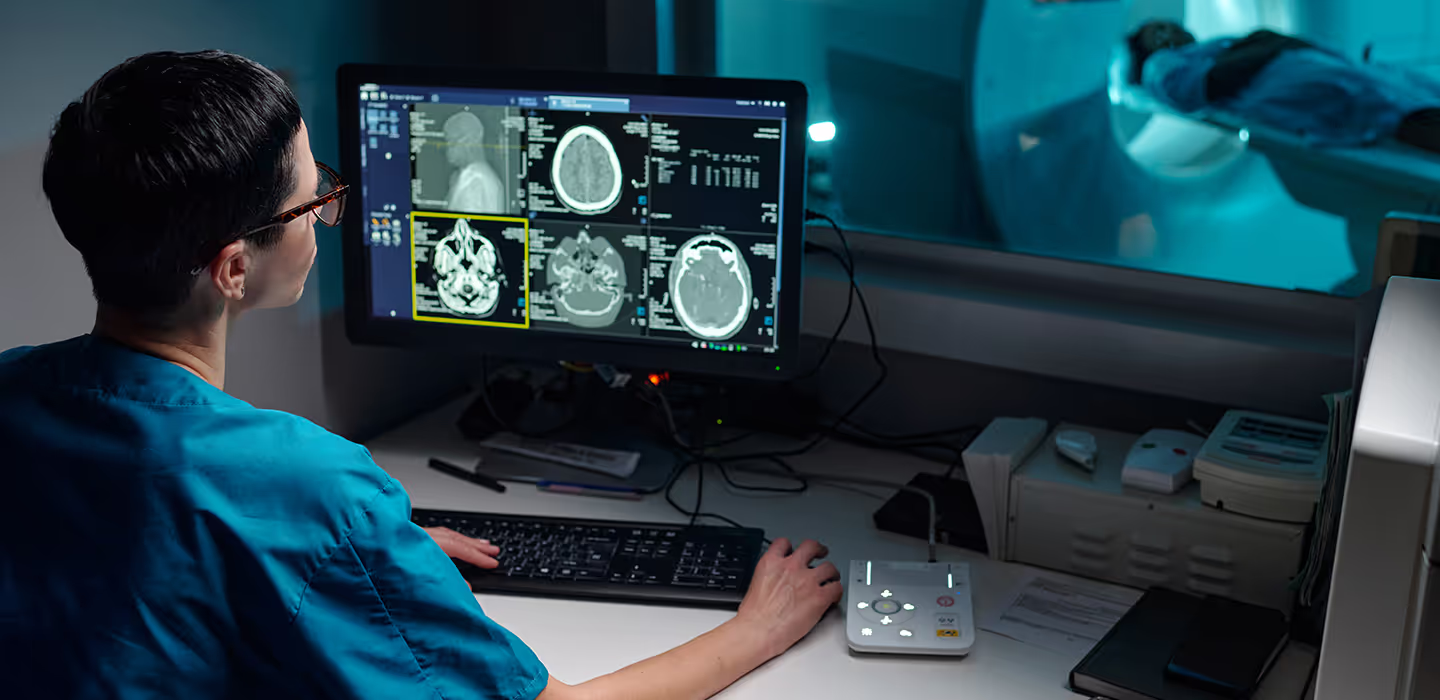
Standing order
Help with a monthly transfer (e.g. €7/month = 1 day of research). Easy to set up via our form or your bank.

Events
Wedding, birthday, race... Organize or support a solidarity event via our dedicated platform.
Frequently asked questions
What is multiple sclerosis?
Multiple sclerosis is an autoimmune disease in which the body's own immune system causes damage to tissues in the central nervous system - particularly the sheath that insulates nerve fibres - thus causing motor and sensory disorders that may result in a physical handicap. The pathological mechanisms involved are numerous and complex, which explains why existing treatments of the disease are only partially effective.
What is the situation in Belgium?
The incidence of multiple sclerosis is unevenly distributed in the world. Belgium unfortunately forms part of a high-risk region. More then 13,000 people are affected by the disease in our country. Belgian researchers were among the first to study the causes of multiple sclerosis and to improve diagnostic techniques while at the same time developing new treatments.
What is the Belgian Charcot Foundation?
The Belgian Charcot Foundation, named after the first neurologist to describe the disease, was founded in 1987 within the "Groupe Belge d'Etude de la Sclérose en Plaques" (GBESP - Belgian Multiple Sclerosis Study Group). The GBESP, a non-profit-making organisation, was itself set up in 1957 in order to raise awareness among Belgian neurologists about the importance of multiple sclerosis and to promote the fundamental and clinical research necessary to combat the progression of the disease.
What is the role of the Belgian Charcot Foundation?
The Belgian Charcot Foundation exclusively supports fundamental and clinical research aimed at treating the disease. The foundation's assets, built over several decades in accordance with its mission and goals, enable the foundation to provide substantial grants to Belgian researchers every year. In 2001, the Charcot Foundation was officially recognised as a public interest foundation.
How does the Belgian Charcot Foundation function?
Once a year, the foundation's Scientific Committee, composed of neurology professors from all the Belgian universities, selects the research projects to be subsidised. On the advice of the Management Committee, the Board establishes an annual amount of funds earmarked for such projects.
Where do the funds come from?
Since its creation, the Belgian Charcot Foundation has relied on the help of the world of culture and of numerous volunteers who generously share their talents and time with us. The Foundation also relies on the support of official institutions and private companies and regularly receives gifts and bequeathments that contribute to its overall fund. Gathering these resources, which are essential to research, is one of the principal aims and concerns of the Belgian Charcot Foundation. In order to fulfil this aim, a number of fund-raising projects are currently under way.
Who receives grants from the Foundation?
Belgian researchers whose projects have been selected and who are required to report regularly to the Belgian Neurology Society on the progress of their research. These fundamental and clinical research projects are also extensively reported in international scientific publications. The results of the projects sponsored by the Belgian Charcot Foundation are thus made available to researchers around the world and contribute to building synergies in this important area of medical research.
What is the current status of research on multiple sclerosis?
Multiple sclerosis is a highly complex illness whose mechanisms are not entirely understood, which is why fundamental research is required. For some years now, doctors have been able to prescribe drugs that can partially inhibit the progress of the disease. Further research in this field is essential to develop increasingly effective treatments.
What prospects for the future?
At present two classes of medicines are available. The first class consists of drugs that are well- tolerated by patients but not very effective. The association of several drugs (polytherapy) to obtain better results is already the subject of clinical studies. Drugs of the second class are highly effective but their use is limited by long-term toxicity. New medicines - potentially just as effective but less toxic - are being researched.
What hope for the future?
Researchers from all over the world meet several times a year to report on the progress of their work. By funding their activities, the Belgian Charcot Foundation provides Belgian researchers with an opportunity to share their expertise, benefit from that of their colleagues abroad and join forces with the international scientific community in the fight against the disease. The future of research depends on teamwork and cooperation between everyone involved, based on the very real hope that new discoveries can be made for the benefit of all the women and men affected by multiple sclerosis.
Stay informed
Receive all the information related to research and news from the Belgian Charcot Foundation directly in your inbox.



















